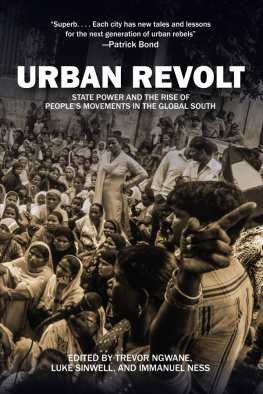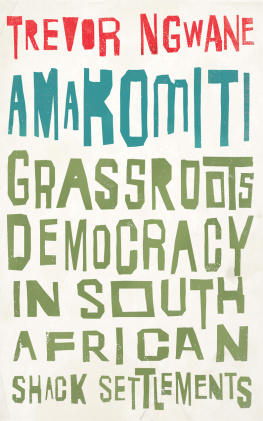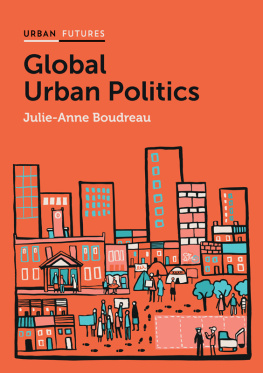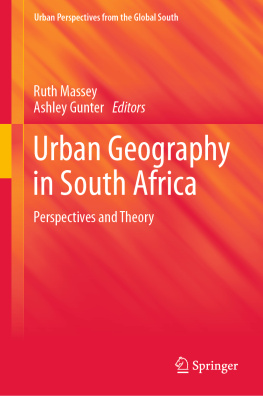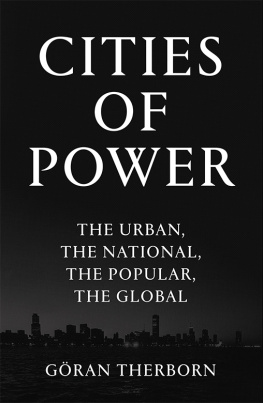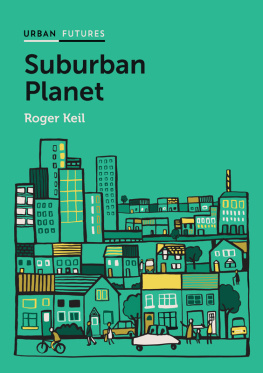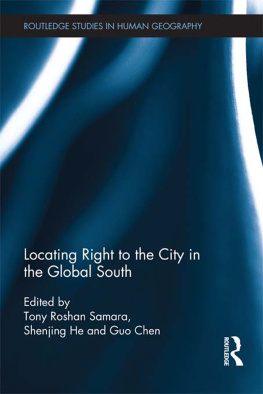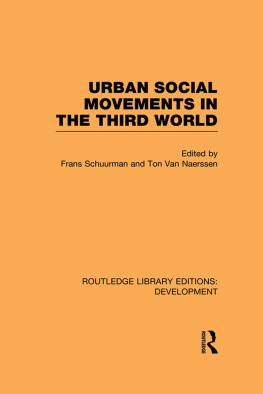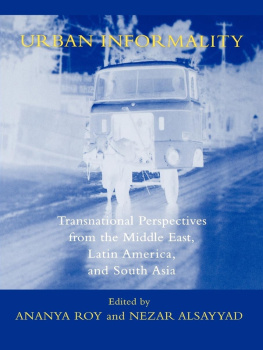Urban Revolt
Urban Revolt
State Power and the Rise
of Peoples Movements in the Global South
Edited by Trevor Ngwane, Luke Sinwell, and Immanuel Ness

2017 Trevor Ngwane, Luke Sinwell, and Immanuel Ness
Published in 2017 by
Haymarket Books
P.O. Box 180165
Chicago, IL 60618
773-583-7884
www.haymarketbooks.org
ISBN: 978-1-60846-714-3
Trade distribution:
In the US, Consortium Book Sales and Distribution, www.cbsd.com
In Canada, Publishers Group Canada, www.pgcbooks.ca
In the UK, Turnaround Publisher Services, www.turnaround-uk.com
All other countries, Ingram Publisher Services International,
This book was published with the generous support of Lannan Foundation and Wallace Action Fund.
Cover design by Eric Ruder. Cover image of a protest in Mumbai courtesy of Bilal Khan.
Printed in Canada by union labor.
Library of Congress Cataloging-in-Publication data is available.
10 9 8 7 6 5 4 3 2 1

Introduction
Trevor Ngwane, Luke Sinwell, and Immanuel Ness
The majority of work on urban social movements (USMs) offers theoretical perspectives and, in some cases, assumes the hegemony of the capitalist framework (see, for example, Harvey 2013). However, these studies fail to adequately interrogate the micro-processes in which the opposite is taking place: where the hegemony of ruling classes is being directly challenged by mass organizations. The sparse literature that does deal with a variety of cases across the globe offers a liberal, management-oriented perspective that does not help the reader to understand the revolutionary potential of USMs. Rather, these analyses leave us trapped within a reformist framework that will never advance the cause of global economic justice. Since major urban areas have become the principal sites of poor and working-class social upheaval in the early twenty-first century, as the arenas of the production, exchange, and reproduction of commodities, the chapters in this book explore key cities in the Global South to identify the common defining sources of USMs. Taking the case of South Africa as a lens or pivot, this book draws from cases in Asia, Latin America, and Africa more generally, further highlighting the ways in which the supremacy of multinational capital has advanced poverty, particularly in the Global South.
Through detailed case studies contributed by activists and scholars engaged in ethnographic research and participant observation, the book unravels the potential and limitations of USMs on an international level. The case studies aim to address the extent to which movements challenge not only neoliberalism but capitalism itself. How are these movements changing larger aspects of society and politics? How do individuals and organizations move beyond the boundaries of constitutional or legal constructs, and to what degree are they successful?
The methodology employed in order to construct the chapters in the book provides a unique texture, which culminates in an urgent, passionate, and persuasive chronicle of the rise of USMs. Together, they demonstrate the ways in which USMs seize control or power within the commons. In each chapter, scholars and activists at the forefront of USMs document the unfolding of this combustible process of super-exploitation, grinding poverty, state and corporate violence, and the rise of social movements rooted in the democratic aspirations of the working class of the Global South.
A central focus of each chapter is examining the lives of the individuals and social organizations who make up these modern movements confronting the state and capital. Through this dialectical study of exploitation and resistance, the significance of USMs comes to life. The reader will recognize the genuine probability that the process of resistance by mobilized working-class inhabitants seeking a voice in determining their societies is presently the most dynamic source of fundamental revolutionary social change.
South Africa as Pivotal Site for Revolutionary Change
On the slopes of a now-infamous mountain in Marikana, South Africajust outside an operations base of the third-largest platinum mining company in the world, Lonminpolice gunned down thirty-four mineworkers on August 16, 2012. Those who had still believed that the ruling African National Congress (ANC) was a liberator of the Black masses now began to be convinced that the ANC was in fact a new oppressor.
To protect the interests of capital, the partys leaders were willing to drown independent working-class mobilization in blood. Despite the fact that the bodies of their brothers had been returned to the rural villages for burial, the vast majority of mineworkers at Lonmin intensified their strike action, employing exceptionally democratic worker committees based on the organic capacity and active consent of the rank and file. As the South African left continues to be reconfigured, with the largest trade union in the country (the National Union of Metalworkers of South Africa [NUMSA], which boasts 400,000 members) de-affiliating from the ANC, in part as a result of the massacre, it is unquestionable that the country will never be the same again.
Marikana, we believe, is symbolic of the spirit of militancy and anticapitalist struggle, which embodies a range of USMs in South Africa and offers a lens through which to understand urban revolt across the world. South Africa not only has more protests per capita than any other country in the world, it is also the most unequal country in the world. It boasts the wealthiest suburb in AfricaSandtonand bridges the Global North/South divide, as the poor struggle to exist in informally (in some cases, illegally) occupied areas. It is no moot point that as we began to write the introduction to this book, the main contributor was in a jail, precisely for struggling with the poor for urban space and services in a community of about twenty thousand people on the outskirts of Johannesburg, which has access neither to proper sanitation nor to decent shelter (in fact, the inhabitants live in corrugated iron shacks). The crisis of capitalism has waged a war against the poor and the working class, who have been partially successful at fighting back through their own alternative governance structures and tactics such as sabotage, road blockades, unprotected strikes, and illegal electricity connections. This book makes a contribution toward understanding the rise of USMs internationally, as capitalism attempts to squeeze the working class further onto the periphery of the city spaces where the majority of the world now lives.
The Ayotzinapa Massacre: Popular Protests against Police Brutality and Social Services in Mexico
The abuse of state power and police violence in South Africa is a global phenomenon that extends to every continent. Mexico epitomizes the collusion between government, business, and law enforcement authorities in attacking innocent civilians, especially protesters seeking to restore basic services such as education, water, and housing. In Mexico, police authorities and capital are eager to resort to state violence to suppress peasant and working-class communities, in which (as is the case in South Africa) the vast majority of people are indigenous to their regions. In the Mexican case, NAFTA augured a new era of neoliberal capitalism, which has amplified inequality and expanded abject poverty. The gross distortions created under NAFTA have allowed US multinational corporations to dump agricultural products into the Mexican market, forcing peasants off the land and into the major cities of Mexico and the United States. Under NAFTA, Pemex, Mexicos state oil company, which the government is privatizing, exports unrefined petroleum to the United States for reimportation and domestic consumption. The Mexican police are now enforcing public order in an era when social services are most needed, due to the rapid growth of the countrys urban population. As poverty and inequality grow and basic services and resources are removed, state and local police are resorting to violence and murder against civilians in defense of the vast expansion of drug cartels and organized crime groups.

